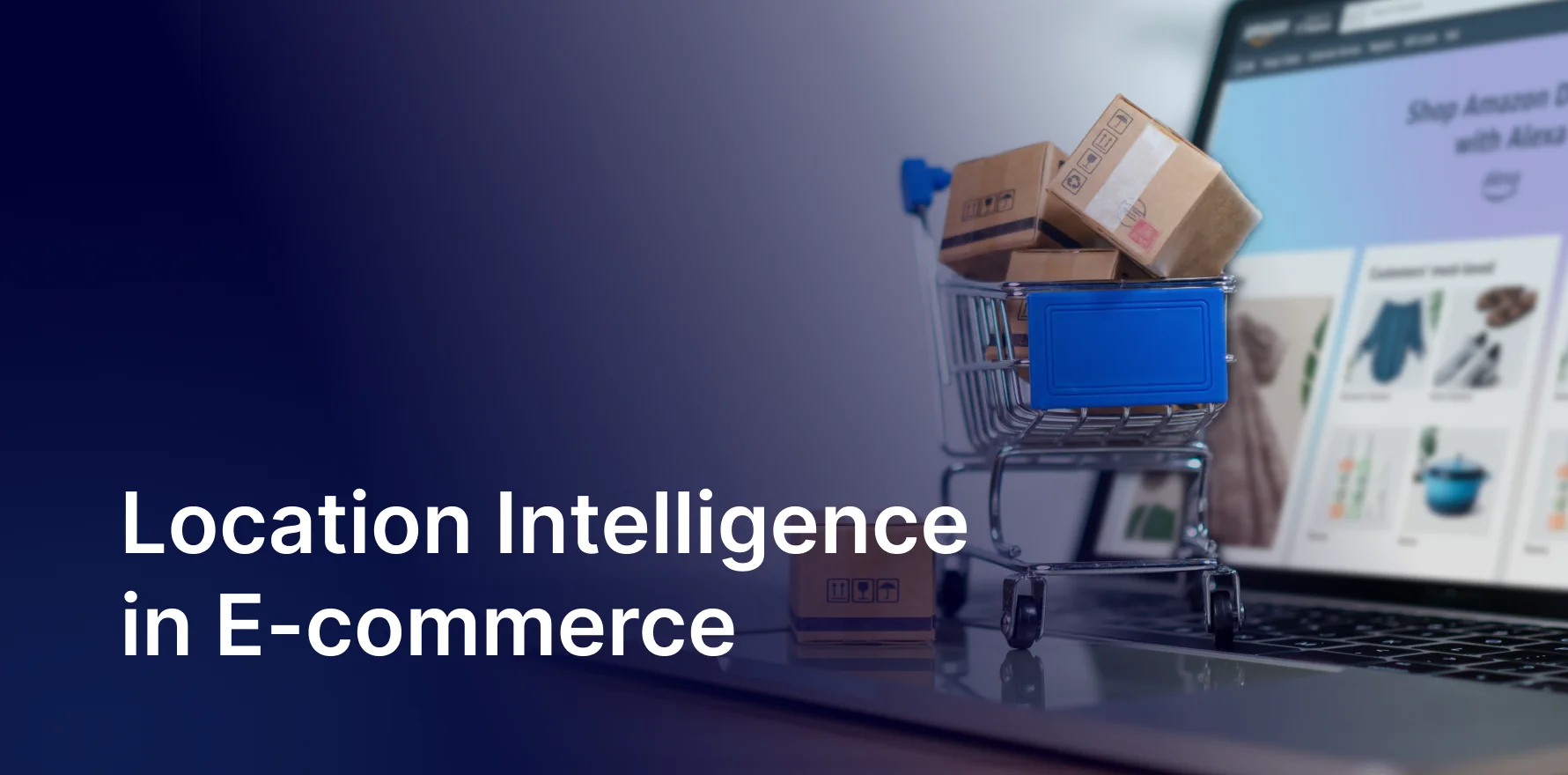In the dynamic and highly competitive e-commerce landscape, understanding customer behavior, optimizing delivery routes, and personalizing shopping experiences are paramount to success. Location intelligence, which leverages geospatial data to provide actionable insights, is revolutionizing how e-commerce businesses operate and make strategic decisions. From enhancing marketing campaigns to improving supply chain efficiency, location intelligence offers numerous benefits that can drive growth and boost customer satisfaction.
This blog explores the top 5 reasons to use location intelligence in e-commerce, showcasing how this powerful tool can help online retailers thrive in an ever-evolving market.
1. Optimize Delivery Routes
- Efficient Logistics: Location intelligence helps e-commerce businesses optimize delivery routes by analyzing traffic patterns, road conditions, and geographic constraints. This ensures faster and more efficient deliveries, reducing shipping costs and improving customer satisfaction.
- Real-Time Adjustments: By leveraging real-time location data, businesses can adjust delivery routes on the fly to avoid traffic congestion, road closures, and other disruptions. This flexibility leads to more reliable and timely deliveries.
- Reduced Costs: Optimized delivery routes minimize fuel consumption and vehicle wear and tear, leading to significant cost savings for e-commerce companies.
2. Personalize Marketing Campaigns
- Targeted Outreach: Location data allows e-commerce businesses to tailor marketing efforts to specific geographic areas, ensuring more relevant and personalized messaging. By understanding the local population’s needs and preferences, businesses can design targeted campaigns that resonate with their audience.
- Customer Segmentation: By understanding the demographics and behaviors of customers in different areas, e-commerce companies can create more effective marketing campaigns. This includes offering region-specific products and promotions that cater to the unique needs of each market.
- Improved Engagement: Personalized marketing campaigns based on location data can increase customer engagement and drive higher conversion rates.
3. Enhance Inventory Management
- Demand Forecasting: Location intelligence helps e-commerce businesses forecast demand more accurately by analyzing local shopping patterns, seasonal trends, and demographic data. This ensures that warehouses are stocked with the right products at the right time, reducing stockouts and excess inventory.
- Supply Chain Optimization: By understanding the geographic distribution of demand, businesses can optimize their supply chain operations, reducing transportation costs and improving delivery times. This leads to more efficient inventory management and better customer satisfaction.
- Streamlined Operations: Enhanced inventory management through location intelligence leads to streamlined operations, reducing the risk of overstocking or understocking products.
4. Improve Customer Experience
- Localized Offers: E-commerce businesses can offer promotions and services based on a customer’s location, increasing relevance and uptake. For example, sending personalized offers to customers based on local events, holidays, or weather conditions.
- Enhanced Navigation: Location intelligence can improve the online shopping experience by offering localized search results, store locators, and pickup options. This makes it easier for customers to find what they need and enhances their overall shopping experience.
- Increased Loyalty: By delivering personalized and relevant experiences, e-commerce businesses can build stronger relationships with customers, increasing loyalty and retention.
5. Gain Competitive Advantage
- Market Analysis: Location intelligence provides insights into competitor locations and market dynamics, allowing e-commerce businesses to make informed strategic decisions. This includes identifying areas with high competition and discovering opportunities in underserved markets.
- Service Differentiation: By understanding local market needs and gaps, businesses can offer unique products and services that set them apart from competitors. This differentiation can attract new customers and retain existing ones.
- Strategic Growth: Leveraging location intelligence for market analysis can help e-commerce companies identify new growth opportunities and expand their market presence.
Conclusion
Location intelligence is revolutionizing the e-commerce industry by providing critical insights that optimize delivery routes, personalize marketing campaigns, enhance inventory management, improve customer experiences, and offer a competitive advantage. By leveraging geospatial data, e-commerce businesses can make more informed decisions, deliver tailored services, and stay ahead in a rapidly evolving market.
As technology continues to advance, the integration of location intelligence into e-commerce strategies will become increasingly essential for success. Embracing this powerful tool can help online retailers drive growth, improve operational efficiency, and achieve greater customer satisfaction.




